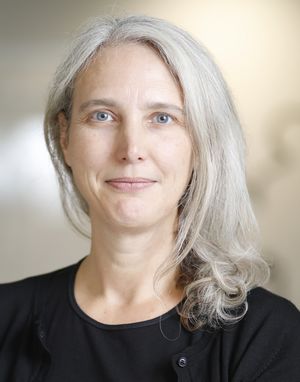Leibniz Cooperative Excellence
EpiC4TT: Epigenetic control of thymic CD4+ T lymphocyte development in humans – paving the way for new iPSC-derived T cell therapies
T lymphocytes play a crucial role in the adaptive immune system by targeting pathogens and tumor cells. They are used in personalized adoptive cell therapies for leukemia treatment, but their full potential for other diseases, especially CD4+ T cell populations for the treatment of autoimmune diseases, has not been fully exploited.
The project aims to understand the epigenetic mechanisms involved in CD4+ T cell maturation and replicate them in hiPSC-based differentiation systems. By comparing DNA methylation patterns in thymocytes from human donors, humanized mice, and hiPSC-derived cell cultures, the project seeks to identify critical epigenetic regulators for human T cell development. Using CRISPR-Cas9 technology and mouse models, the researchers aim to improve hiPSC-based T cell generation protocols and enhance therapeutic T cell products.
Cooperating partners
German Rheumatism Research Centre Berlin (DRFZ)
- (Coordinator)
Leibniz Institute on Aging – Fritz Lipmann Institute (FLI)
Berlin Institute of Health @Charité
Tick Tock: Linking Pathology and Lifestyle to Epigenetic Determinants of Biological vs. Chronological Stem Cell Aging
Aging leaves traces in our DNA. These traces, co-called DNA methylations, can be read by researchers to accurately determine an organism’s age. However, the determination of an organism’s age alone is not a proof that methylation itself directly affects the process of aging.
Causal relationships
This project aims to find exactly these causal connections between DNA methylation and aging. The researchers focus on hematopoietic stem cells, which give rise to immune cells. Immune cells are a particular example of cells that lose their functions in aging organisms. Therefore, the project will contribute significantly to our understanding of aging processes and to the development of therapeutic interventions.
Cooperating partners
Leibniz Institute on Aging - Fritz Lipmann Institute (FLI)
- (Coordinator)
German Institute of Human Nutrition Potsdam-Rehbrücke (DIfE)
Hannover Medical School (MHH)

Contact

Claudia Waskow
Partner
+49 3641 65-6707
claudia.waskow@~@leibniz-fli.de
Contact

Björn von Eyß
Coordinator
+49 3641 65-6047
bjoern.voneyss@~@leibniz-fli.de








